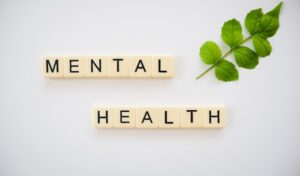
What is strength?
I’d like to share a few thoughts that I have on cultural messages around being strong, and being weak, and who is strong and who is weak.
We get a lot of cultural messages about strength being associated essentially with aggression, with a sort of toxic masculinity, or someone who is very forceful, or someone who’s very loud, someone who speaks their mind, someone who is forceful in various ways. And people who tend to freeze up, who tend to hold back, who tend to hide, being weak.
Those are the cultural messages that we get a lot. And I’d like to question that, because we talk about the fight or flight response frequently, and those words are paired (and there’s others as well, the fight, flight, fawn, freeze, all those different responses). Those are all different responses to fear. They’re different strategies that people and other animals have in response to a threat, a danger, something that they’re afraid of.
And what I think happens is when a child (a human child) doesn’t have models, adults who are able to teach other options for how to deal with fears, we default to these instinctual responses. And most of us have one or two that we tend to default to. Some people will default to the fight response. Some people will default to the freeze or fawn responses, or flee (to run away).
They’re not actually being all that strong. They’re being afraid.
We have ones that we tend to default to, but here’s the thing, fight is just as much of a fear response as freeze is. They’re both responses to fear. So when someone comes off as especially aggressive, a lot of times that’s a fear response that they’re exhibiting. They’re not actually being all that strong. They’re being afraid.
So when we’re growing up, if we don’t have access to people who are able to teach us different responses to fear, different ways to deal with our fears, different ways to to regulate our emotions in those situations, then all we have is that instinctual response to default to.
And if your response tends to be freeze, then you’re going to do that. Whether you’re actually facing someone who’s threatening to beat you up, or whether it’s a test at school that you’re nervous about and you freeze up over, or whether it’s you just wanting to introduce yourself to the other kids on the playground, and you’re not sure if they’re going to say, “Yeah, they’ll play with you.”
But there’s all sorts of different types of situations where you’re going to be afraid, where you’re going to be nervous, where you’re going to be concerned about something, but if the only strategy you have is that one default instinctual one, then you’re going to go with that with all of those situations. And for some of us, we tend to freeze, or run away, or fawn, or fight. Being aggressive in every potential situation is culturally coded towards thinking that that’s a strength, but it’s not actually being strong. It’s being afraid.
Responding to fear differently
So I guess what I want to bring up here is to pick apart that just because there is a cultural message around a certain aggressive response being coded as strong, that doesn’t necessarily mean it’s a strength. And some responses being coded as weak (according to culture) doesn’t necessarily make it any weaker than the one that’s coded as strength, because they’re both about fear.
And also that, regardless of what your instinctual, default fear response is, there are other ways to deal with fear that we can learn. And if you haven’t had people teach you that, just as a matter of course in your life, if you haven’t had the benefit of other people who know how to deal with fear in multiple ways: it’s not too late.
You can learn these things. It might take more work to go and seek it out on your own, but you can do that.
Because not all situations in which you feel afraid are the same type of situation, and therefore different responses can be useful. And having just one strategy for all of those different types of situations… Well, it’s something, but having more strategies gives you more options, and that gives you power.
And here’s the thing, if you’ve only had one or very few strategies in your life to deal with fear, there are probably a lot of associations around any kind of fear, worry, nervousness, concern, whatnot, that feel intense, that feel overwhelming. And there’s a lot of associations around that as being just blanket “not okay”, but you can deal with a lot of things.
In fact, you have dealt with a lot of things throughout your life. You’ve gotten through things that have been scary, that have been things that you didn’t want to happen, but you’ve still gotten through them, which means that you can get through them. And the work that you’re doing now, in your own personal growth journey, to find better ways to deal with things, ways that weren’t just taught to you as a matter of course, this is how you make your life better. Developing more strategies, having more options of what you can do in your life.
Okay, I noticed that I’m getting a little repetitive and ramble-y here. I’m gonna leave it, but I hope that this was something interesting to think about, and might provoke some other reflections.
Alright, I wish you a neurowonderful day. Take care.





One Response
I think also, strength can be persistence. To get up every day, keep going, however difficult your life is e.g. health problems, caring for another person/family, some kind of struggle like that. Not to run away but face every day, over and over again, getting through it. Quietly, in the background, no one noticing or helping or supporting. Just persevering.